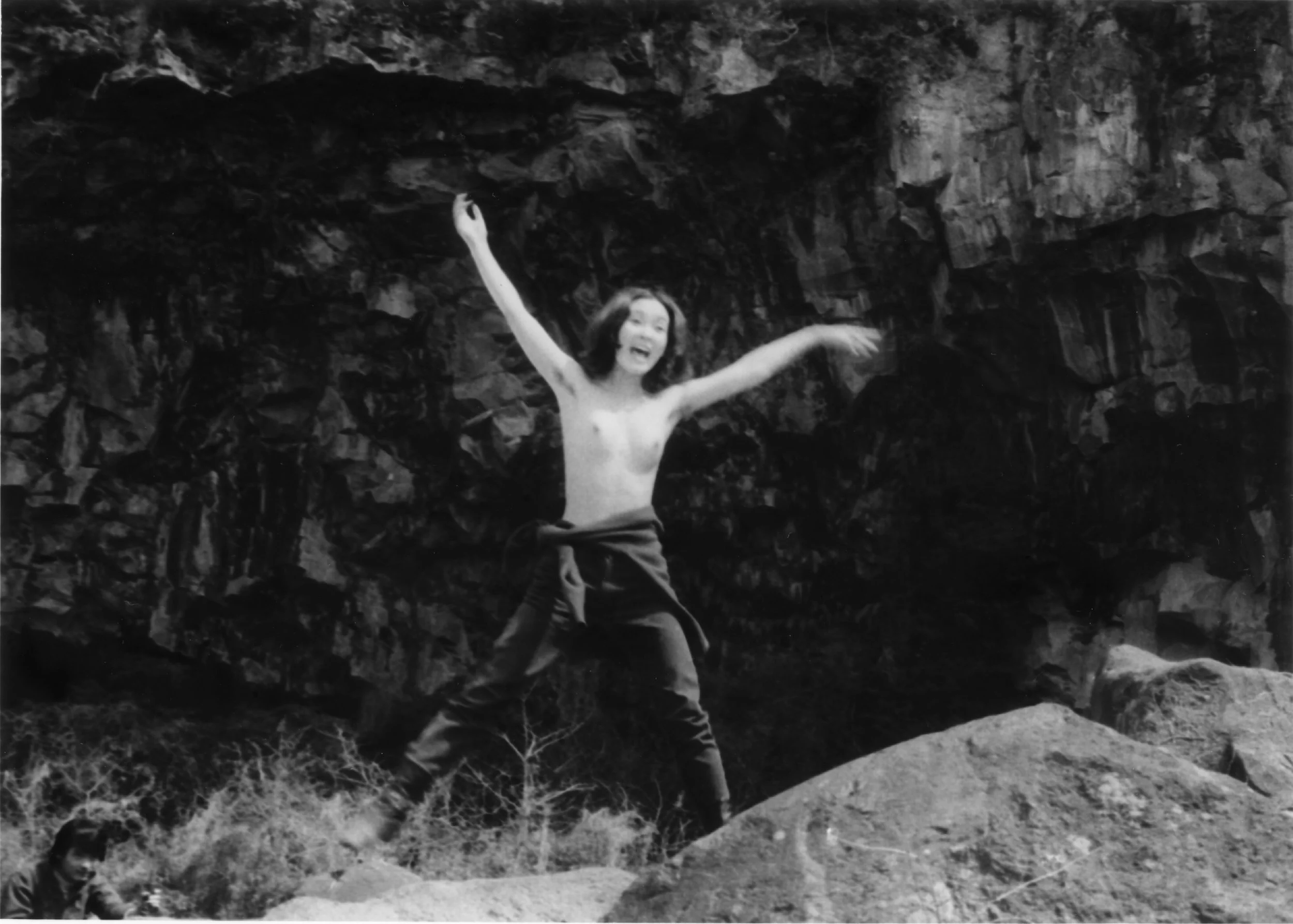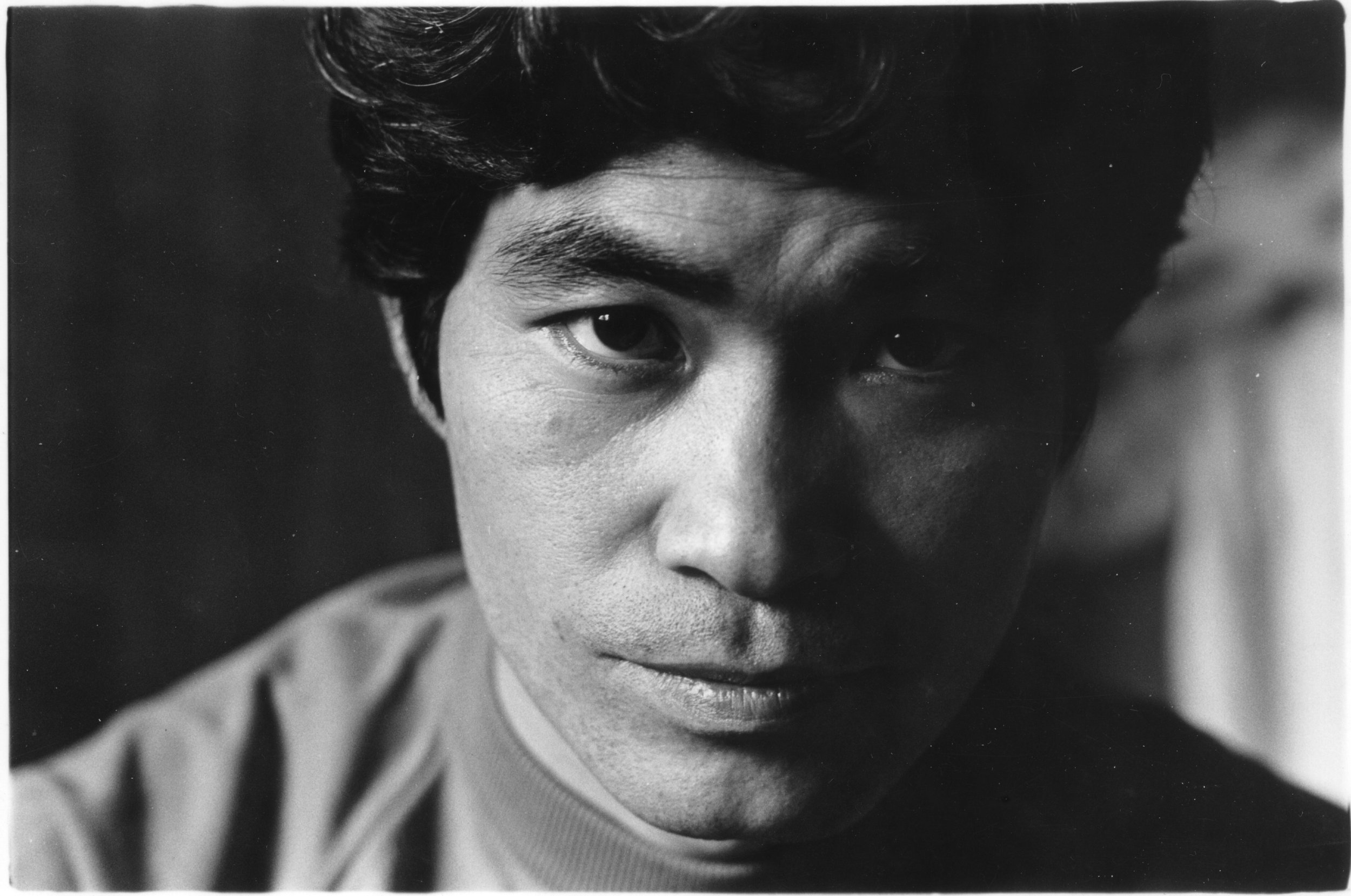Online Screening
Female Student Guerrilla (1969)
11/3-11/13/2022
Female Student Guerrilla (1969), Directed by Masao Adachi. Image ©Masao Adachi.
The second of the two screenings in the series, “Stepping Out of Politics: Films by Masao Adachi” organized by Go Hirasawa will present Masao Adachi’s Female Student Guerrilla. Hirasawa will do a deep dive interview with Adachi about the film and more, on September 29th, not to miss!
“Stepping Out of Politics: Films by Masao Adachi” addresses the intersections between film and the philosophical questions of what is politics, revolution, film, and ultimately media itself. This program will explore these questions through the two screenings and the live discussion on October 29th.
The screening is available on CCJ’s viewing platform. $12 for non-members; $10 members.
Female Student Guerrilla, 1969, 73 min, part color, 35mm transferred to digital
Directed by Masao Adachi
Screenplay by De Deguchi (Masao Adachi)
Masao Adachi’s fifth pink film. During the rise of the All-Campus Joint Struggle League (Zenkyōtō movement), in order to crush the graduation ceremony, 5 high schoolers rob weapons from the Self-Defense Forces and initiate a guerrilla warfare in the mountains that is their base. The film raised new issues in the post-1968 context by centering the story around the female high school student as the main protagonist, whose woman activist’s point of view criticizes the male-centric authoritarianism present in revolutionary movements, while setting forth a militant fight against the existing political movement. The movie's portrait of a psychotic soldier prefigures the following year’s coup attempt, led by writer Yukio Mishima, at a Tokyo Self-Defense Forces base, and its examination of inner-group frictions (uchi-geba) foreshadows the Asama Sanso Incident of 1972, where conflicts culminated in a shoot-out between police and student activists.
Warning: this film contains explicit sexual content.
女学生ゲリラ
1969年/73分/パートカラー/35mm
監督:足立正生
脚本:出口出(足立正生)
足立正生による5作目のピンク映画。全共闘運動の興隆のなかで、高校生5人組が卒業式粉砕のため、自衛隊から武器を奪い、山中を根拠地にゲリラ戦を展開する。女子高校生を主人公に、革命運動における男性中心的な権威主義を女性活動家の視点から批判するとともに、既存の政治運動に対して武装闘争を対置させ、1968年以後における新たな課題を提起していく。また、狂った自衛官の姿には、1970年に自衛隊に決起を呼びかけて自決した文学者の三島由起夫による事件、山岳での内ゲバには、1972年に赤軍派から分派した連合赤軍が起こした同志殺しを予感させる。
Go Hirasawa, Meiji Gakuin University (Tokyo)
Go Hirasawa is a researcher at Meiji-Gakuin University working on underground and experimental films and avant-garde art movements in 1960s and '70s Japan. His publications include Godard (Tokyo, 2002), Fassbinder (Tokyo, 2005), Cultural Theories: 1968 (Tokyo, 2010), Koji Wakamatsu: Cinéaste de la Révolte (Paris, 2010), and Masao Adachi: Le bus de la révolution passera bientot près de chez toi (Paris, 2012). He has organized more than fifty film exhibitions throughout the world, including Underground Film Archives (Tokyo, 2001), Nagisa Oshima (Seoul Art Cinema, 2010), Koji Wakamatsu and Masao Adachi (Cinematheque Française, 2010), Theatre Scorpio: Japanese Independent and Experimental Cinema of the 1960s (Close-Up: London, 2011), and Art Theater Guild and Japanese Underground Cinema, 1960–1986 (The Museum of Modern Art, New York, 2012).


